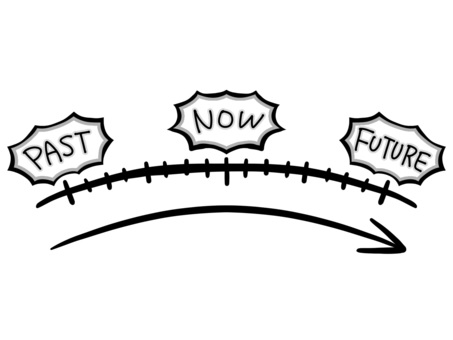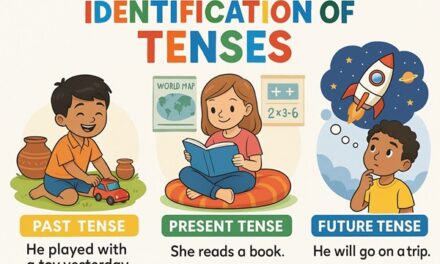This chapter is all about the Simple Present Tense, and how to use it to make negative sentences.
What is the Simple Present Tense?
The Simple Present Tense is used to talk about actions that happen regularly, habits, facts, or general truths.1 Think of things you do every day, like brushing your teeth or going to school. It’s also used for things that are always true, like the sun rising in the east.
How do we use the Simple Present Tense?
The Simple Present Tense has two main forms:
- For most subjects (I, you, we, they, plural nouns): We use the base form of the verb.
- Example: I play football. They eat lunch. The dogs bark.
- For singular subjects (he, she, it, singular nouns): We usually add “-s” or “-es” to the base form of the verb.2
- Example: He plays football. She eats lunch. The cat meows.
Negative Sentences in Simple Present
To make a negative sentence in the Simple Present Tense, we use “do not” or “does not” before the base form of the verb.3
- With “do not” (don’t): We use “do not” with I, you, we, they, and plural nouns.
- Example: I do not (don’t) like spinach. They do not (don’t) play video games all day.
- With “does not” (doesn’t): We use “does not” with he, she, it, and singular nouns.4
- Example: He does not (doesn’t) eat candy. She does not (doesn’t) sing opera.
Important Rules to Remember:
- “Do” and “Does” are helping verbs: They help us make negative sentences and questions.5 The main verb stays in its base form.
- Contractions: “Do not” can be shortened to “don’t,” and “does not” can be shortened to “doesn’t.” These contractions are more common in everyday speech.6
- Subject-Verb Agreement: The verb must agree with the subject. If the subject is singular, use “does not.” If the subject is plural, use “do not.”
Examples of Negative Sentences:
- I don’t like rainy days.
- You don’t understand the question.
- He doesn’t play the piano.
- She doesn’t watch much television.
- It doesn’t rain much in the desert.
- We don’t have any pets.
- They don’t live in this city.
Image Courtesy

















